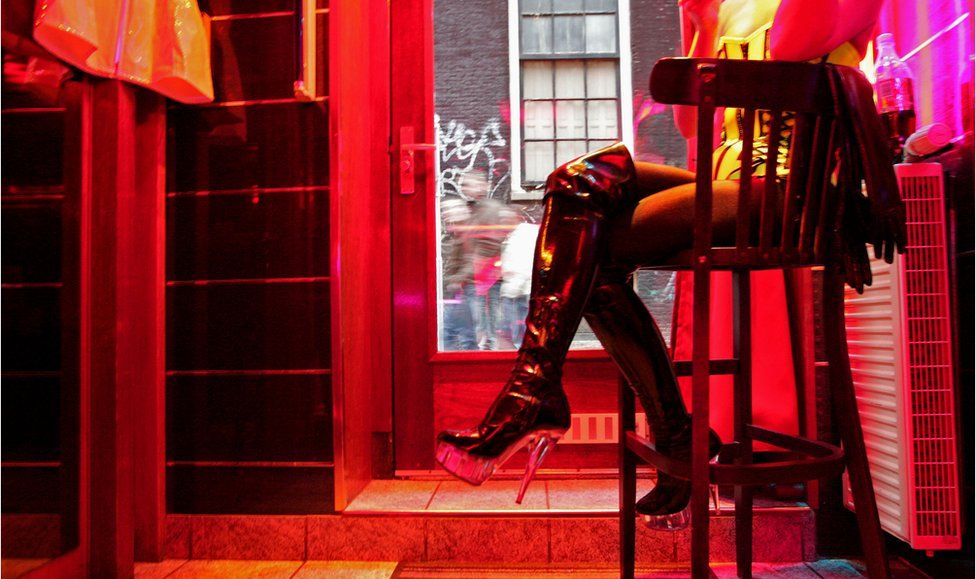Amsterdam brothel owners must speak sex workers' language
- Published

Dutch brothel owners must be able to communicate with sex workers in their own language to protect them from abuse, the EU's top court has ruled.
The authorities in Amsterdam were right to refuse a brothel owner permission to operate because he could not speak Hungarian or Bulgarian, the European Court of Justice (ECJ) said.
Brothels are legal in the Netherlands and must be licensed locally.
But the authorities are trying to tackle human trafficking and abuse.
ECJ rulings are binding throughout the 28-member EU.
"The court considers it is possible to require that a brothel owner be able to communicate in the same language with the prostitutes who work there," the ECJ said in a statement.
Only then could a brothel, including Amsterdam's famous "shop windows", be organised to prevent abuses and criminal offences against the sex workers, it said.
An Amsterdam window prostitute and blogger, who uses the pseudonym Felicia Anna, told the BBC communication was key to fighting issues such as trafficking.
However, she said most of the sex workers she knew already communicated with brothel owners - as well as clients and law enforcement - in second languages such as Dutch or English.
She said new rules over the languages spoken would stop women who did not speak Dutch or English renting legal window spaces - seen as safer than illegal street prostitution.
'Public interest'
Thursday's ruling comes after the authorities in Amsterdam refused to grant new permits to a brothel owner who rents windows to prostitutes in the city's red light district.
The court said the decision was justified because he could not speak Hungarian or Bulgarian - the prostitutes' languages - to ask them whether they had been trafficked or forced to sell sex.
The brothel owner said he could use interpreters or online translation software instead.
He invoked EU single market rules, saying Amsterdam's mayor, who is not named in the case, was being "discriminatory" and "disproportionate".
But the ECJ rejected this, citing "overriding reasons relating to the public interest".
Prostitution was legalised in the Netherlands and in Germany in 2002.
Under Dutch law, those working in the trade have to register at the chamber of commerce and pay tax.
But officials have tried to tighten up practices in Amsterdam in recent years, in an effort to combat human trafficking and organised crime.
It has been reported that around three-quarters of the women who work in the city's sex industry are foreign, arriving mainly from Eastern Europe, Africa or Asia.
- Published2 October 2012
- Published6 July 2012
- Published21 February 2014